Latest News
Viktoria Soltesz: the Online Payments Pro Teaching Us How Money Moves
Viktoria Soltesz is a Payment Consultant, BusinessWoman of the Year 2023, and now an Author, with her book “Moving Money – How Banks Think”, being published on all Amazon stores since early January 2024.
Viktoria is the founder and CEO of PSP Angels Group – an independent payment consulting firm with a vast understanding of the payment market, and an extended network of banks and financial providers, offering personalized payment consulting services, helping clients operate their business globally.
In her book, “Moving Money – How Banks Think”, she walks the reader through the history of transactions and financial systems, offers a detailed explanation of basic banking principles, and delves deep into payment solutions, requirements, risk policies, and compliance limitations associated with online payments.
Viktoria, congratulations on the publication of your book, and thank you for joining us to share more information about it with our readers! In the Foreword of the book, you introduce yourself, detailing your professional background and your fascinating journey into the world of online payments. Can you please give us a short introduction here as well?
My adventure began in England, where I worked for a well-known accounting software company, witnessing firsthand the globalization of financial practices. My move to Cyprus coincided with the adoption of the Euro, offering me unique insights into the island’s financial dynamics. In Cyprus, I started working in accounting and finance, offering tax planning and managing complex global transactions. When I faced various payment and banking compliance challenges, I determined to understand the payment industry and founded PSP Angels, an independent payment consultancy. My goal with the book is to simplify the payment and banking industry, educate businesses about the importance of compliance, and foster understanding between clients and payment service providers.
Blending personal anecdotes, real time stories and my professional experiences, I describe the challenges businesses face in navigating the evolving landscape of online payments. The book aspires to contribute to making online payments more efficient, secure, and understandable, while encouraging open discussions within the industry.
In the book, you speak of “Financial Literacy” and “Payments Literacy”, and how this fundamental knowledge is not taught in schools. Can you give us a brief summary of the key points that businesses should be aware of and take into consideration when setting up their financial operations? What are the basics of “Financial Literacy” and “Payments Literacy”?
Finance is the language of business and understanding the basics of accounting, taxes, and financial expressions is a must for every business. Financial Literacy is the knowledge to manage money effectively, and plan for future financial goals. Knowing the financial terms and concepts helps businesses to make informed decisions regarding savings, investments, and debt. On the other hand, Payments Literacy is often neglected and misunderstood. The concept of “how money moves” globally is not taught in schools, however today all businesses need to understand how to navigate various payment methods, systems, and processes. Payments Literacy encompasses a range of topics related to financial transactions, including online payments, electronic transfers, and traditional banking methods. It is essential for businesses to understand cybersecurity, the various compliance and regulatory environments, plan banking and payments ahead and source and select the relevant providers for these transactions. All international companies need to be aware of diverse payment methods to align with local customer preferences. Payments Literacy is complementing Financial Literacy and they are both vital for effective business operations.
As you describe your journey into payments and how the problems you encountered lead to understanding, you share instances of complicated structures, early financial compliance attempts and rigid bank processes around the mid ‘00s to 2010s. How has the landscape evolved by now? Would you say that compliance has found its footing, have the banking and payments processes become more clear and friendly to businesses and consumers alike?
I believe that challenges in payment and banking have become more complex and will continue to evolve. With the increasing shift of businesses to online platforms and their expansion into international markets, complexities in payment and banking processes are on the rise for everyone involved. Maintaining transparency, ensuring compliance, and managing the risks associated with uncertain territories and service providers has become a challenging task. The emergence of new technologies, such as crypto payments, and the variety of currency and asset management options add an extra layer of complexity to these challenges. Not to mention the various cybersecurity and data protection requirements, too. Businesses today not only need to be experts in the traditional financial structures but also have to adapt to the dynamic landscape of digital payments, banking, and payment methods. Successfully addressing these multifaceted challenges requires heightened awareness, strategic planning, and a commitment to staying informed about evolving technologies and about the ever-changing regulatory landscapes.
How has Fintech played a pivotal role in shaping the evolution of the payment market, and what key contributions or innovations has it introduced over the course of its history?
Fintech became a powerful force reshaping the traditional banking and payment market. Innovations in such a conventional industry was much needed and have significantly improve the efficiency and accessibility of financial transactions. One noteworthy contribution is the introduction of mobile payments, enabling individuals and businesses to seamlessly conduct transactions through their smartphones. This shift to mobile-centric solutions not only simplifies the payment process but also promotes financial inclusivity, reaching individuals who may not have had access to traditional banking services. This has opened up new markets for global trade.
Fintech also brought us the digital wallets and peer-to-peer payment platforms, facilitating fast and secure fund transfers. These innovations have transformed consumer expectations, placing emphasis on speed, convenience, and heightened security in financial transactions. Fintech has driven progress in data analytics, enabling more sophisticated risk assessment and fraud prevention measures. The integration of Application Programming Interfaces (APIs) has played a pivotal role in fostering collaboration between financial institutions and Fintech entities. This interconnected ecosystem has resulted in the creation of diverse financial solutions, ranging from automated budgeting tools to advanced investment platforms.
Speaking of Fintech, in practical terms, how are Blockchain and Cryptocurrencies currently being utilized in everyday applications within the payments system, and what impact are they having on traditional payment methods?
Blockchain and cryptocurrencies, although holding significant promise, currently face challenges in practical application within everyday payment systems. Unfortunately, these technologies have become vulnerable to misuse and scams due to the absence of regulation, undermining their positive potential. Despite their increasing adoption, the tarnished reputation blocks widespread acceptance. In every country, authorities worry that unmonitored transactions may facilitate tax evasion or criminal activities. Although efforts are underway to implement regulations and bring order to the landscape, the current situation remains complex, still providing opportunities for creative individuals to exploit gray areas. The potential benefits of blockchain and cryptocurrencies, such as enhanced security and transparency, are unfortunately still overshadowed by instances of misuse. Achieving widespread adoption necessitates not only technological advancements but also a coordinated effort to address regulatory ambiguities. It is crucial to educate users about the legitimate and responsible use of these innovations. Until a balanced and well-regulated approach is established, the transformative potential of blockchain and cryptocurrencies may be hindered by their association with illicit activities. This underscores the critical need for a comprehensive and carefully regulated integration into mainstream payment systems.
Readers will have the opportunity to meet you and get their book copies signed at the Prague Gaming & TECH Summit, on 26-27 March 2024; you will be participating as an expert speaker in two panels: “Navigating the Future: Integrating iGaming, AI, Fintech, and Advertising with Compliance and Data Privacy”, and “Capital Navigation: Expert Strategies for Securing Investment”. Can you give us a sneak-peek of the key points you will be discussing?
In the upcoming discussion, I’ll be sharing practical tips to help the audience navigate common challenges with banking and payment pproviders and their products, digital assets, and other payment methods, mainly present for the iGaming sector. My focus is on providing valuable insights into more cost-effective and secure banking and payment providers. Unfortunately, the iGaming sector is still facing serious payment and banking challenges, and complexities of global fund transfers. I’ll offer advice on executing these transactions in a safer and more economical manner. The aim is to deliver substantial content value to the audience by offering real-life tips and conducting workshops that empower individuals to navigate the intricacies of financial transactions with confidence.
In ‘Moving Money – How Banks Think, you mention that your goal is to introduce a new approach in both payment planning and execution. What are the key insights that businesspeople and everyday individuals can gain from your book, and in what areas can they seek your professional consultation?
In the book, I’ve distilled years of experience into a practical method outlined in the Strategy section, serving as a step-by-step guide to minimize risk and optimize costs for any online business. My consultancy work aims to bridge knowledge gaps by providing a detailed explanation of basic banking principles and fundamental economic concepts. I assist businesses by offering insights on staying updated about emerging payment and banking trends. My work helps clarifying various aspects and benefits of online payment solutions, positioning for innovation, seizing growth opportunities, exploring global payment methods and their impact on customer satisfaction, acquisition, and retention. I also provide guidance on understanding various regulations and compliance for navigating legal landscapes, ensuring data security and protecting consumer rights. My 20+ years payment and financial experience helps businesses creating effective payment plans for their complex online payment and banking flows. This comprehensive approach is designed to empower businesses with the necessary knowledge and strategic insights to successfully navigate the intricate world of payments.
Thank you for your time and this riveting interview, Viktoria! We look forward to seeing you at the Prague Gaming & TECH Summit this March, learn more about the exciting updates in the ever-evolving world of payments, and get our books signed!

Latest News
From ‘Mummyverse’ to Crash Games: Belatra Reviews a Landmark 2025
Editor’s Take
Why this matters: Belatra has been a steady hand in the slots world for a long time, but 2025 marked a distinct shift in strategy. By entering the Crash vertical with Goose Boom Bang and winning big at SiGMA Africa, the studio is clearly pivoting to capture the high-growth, high-frequency players in emerging markets. They are no longer just a “classic slots” developer; they are diversifying the portfolio to ensure relevance in regions like LatAm and Africa.
The Full Story
Belatra Games, the specialist online slots developer, has issued a strategic review of its 2025 operations, celebrating a 12-month period defined by entry into new game verticals, significant franchise expansion, and high-profile industry recognition.
The year was characterized by a dual strategy: deepening engagement in established markets while aggressively expanding its content portfolio to suit local preferences in emerging territories.
Portfolio Evolution: Crash and Battles 2025 saw Belatra move beyond its traditional slot roots. The company made its debut in the high-demand Crash game vertical with the launch of Goose Boom Bang, a title designed to tap into the fast-paced gameplay preference of younger demographics.
Additionally, the studio introduced a fresh game concept with the launch of Battles, a new format unveiled for the first time in 2025, with further development planned for 2026.
The ‘Mummyverse’ Expands For fans of classic slots, the highlight of the year was the aggressive expansion of the Mummyverse. Belatra nearly doubled the size of this franchise over the year, making it the most extensive game universe in their entire catalog.
The developer also focused on B2B localization, releasing a number of exclusive bespoke games created specifically for selected operator partners to meet specific local market tastes.
Awards and Recognition The company’s strategic shifts were validated by industry accolades. Belatra secured over 30 nominations throughout the year, with standout wins including:
-
Best Slot Provider (awarded by BitStarz).
-
Most Played Game of 2025 for Make It Gold at the SiGMA Africa Awards.
-
Player’s Pick Award.
Management Commentary Misha Voinich, Head of Business Development at Belatra, commented on the studio’s momentum:
“This year has truly defined who we are as a studio – ambitious, creative and focused on building long-term partnerships. We’ve expanded our universes, launched new ones and entered exciting new markets that will all help us carry this momentum into the New Year.”
The post From ‘Mummyverse’ to Crash Games: Belatra Reviews a Landmark 2025 appeared first on Gaming and Gambling Industry Newsroom.
Latest News
‘Chaos and Soul’: Ebaka Games Plots Global Expansion After Viral Launch
Editor’s Take
Why this matters: The “Instant Game” vertical (Crash, Plinko, Mines) is becoming crowded, but Ebaka Games is cutting through the noise with a distinct brand personality. By securing BMM Testlabs certification so quickly after launch, they are signaling to Tier 1 operators that despite their “chaotic” marketing vibe, the math underneath is solid and compliant. The backing of industry veteran Dmitry Belianin also adds immediate commercial credibility to the startup.
The Full Story
Ebaka Games, the fledgling studio that promises to bring “chaos and soul” to the iGaming sector, has outlined an aggressive growth strategy for 2026 following a landmark launch period in late 2025.
The studio, which officially debuted in November, reports that its initial rollout reached more than five million people worldwide. The launch saw its portfolio go live with the operator Menace, serving as the initial testbed for its mechanics and “Ebaka modes.”
The Product: Instant Games with Personality Ebaka is bypassing traditional slots to focus on the high-growth vertical of fast-paced, instant-win games. Their initial lineup includes:
-
Plinko
-
Mines
-
Tower
-
Limbo
-
Crash
Differentiation is achieved through unique mascots and signature gameplay tweaks designed to offer high win potential and distinct visual identities, moving away from the generic interfaces often found in this genre.
Regulatory Milestone Crucially for its 2026 roadmap, Ebaka Games has confirmed it has secured certification from BMM Testlabs. This accreditation validates the fairness and integrity of its RNG (Random Number Generator) and game engines, removing a major barrier to entry for regulated markets. With this certification in hand, the studio plans to launch with a number of “major brands” in the coming year.
Management Commentary Vitalii Zalievskyi, CEO of Ebaka Games, commented on the studio’s unorthodox approach:
“It’s only been a few weeks since we first introduced Ebaka Games to the world. The feedback has been breathtaking, and it vindicates the decision for us to take a different path to the rest of the industry. You don’t need huge marketing budgets to grab people’s attention if you are building something truly innovative.”
Industry Backing The studio describes itself as being “created by players for players” but boasts significant industry firepower in its corner. The team includes Dmitry Belianin, a well-known figure in the sector who is the co-founder of Blask and Menace, as well as Managing Partner at Already Media.
The post ‘Chaos and Soul’: Ebaka Games Plots Global Expansion After Viral Launch appeared first on Gaming and Gambling Industry Newsroom.
Latest News
Racing Meets Nightlife: SBK Backs ARC’s New ‘Friday Night Live’ Series
Editor’s Take
Why this matters: British racing has a well-documented demographic problem; its core audience is aging. “Friday Night Live” is a direct attempt to fix this by blending high-stakes racing with the “experience economy” (DJs, nightlife vibes) that appeals to Gen Z and Millennials. Bringing SBK on board—a mobile-first, app-only sportsbook—is a perfect demographic fit, while the Racing Post adds the necessary credibility to ensure the actual racing product remains the focus.
The Full Story
Arena Racing Company (ARC) has unveiled the strategic commercial lineup for its upcoming Friday Night Live series, confirming SBK as the Exclusive Betting Partner and The Racing Post as the Official Media Partner.
Set to launch in January 2026, Friday Night Live is a new initiative created in collaboration with youth-focused events company INVADES. The series is designed to overhaul the traditional race day experience, featuring fast-paced fixtures under floodlights, DJ sets, and significant entertainment elements sandwiched between races.
The Commercial Deal
-
SBK: As the exclusive betting partner, the Smarkets-owned sportsbook will take naming rights and on-course branding for all 35 races. Crucially, these races will be broadcast live on mainstream television via ITV Racing as well as Sky Sports Research.
-
The Racing Post: As the Official Media Partner, the publication will provide content, coverage, and promotion across its digital platforms, aiming to bridge the gap between established racing purists and the new audience ARC hopes to attract.
A High-Stakes Experiment The series is not just a marketing exercise; it carries serious sporting weight. Each of the five scheduled nights will feature over £200,000 in prize money. The fixtures will rotate across three of ARC’s all-weather tracks: Wolverhampton, Newcastle, and Southwell.
Management Commentary David Leyden Dunbar, Group Director of Commercial Strategy at ARC, was clear about the target audience:
“We have been very clear that one of the aims of Friday Night Live is to engage the next generation of racing fans… Both [partners] have shown real enthusiasm to work with us… as well as using the platform that these fixtures will offer them to also engage with more established racing and sports fans.”
Adam Baylis, Marketing Director at SBK, added:
“Friday Night Live [is] a fresh and engaging concept that brings a new energy to British racing. SBK has always been built around sport… our focus is on enhancing the live race day experience in a fun, social and responsible way.”
The 2026 Schedule The series kicks off immediately in the new year:
-
9th Jan: Wolverhampton
-
6th Feb: Newcastle
-
20th Feb: Southwell
-
20th March: Wolverhampton
-
27th March: Newcastle
The post Racing Meets Nightlife: SBK Backs ARC’s New ‘Friday Night Live’ Series appeared first on Gaming and Gambling Industry Newsroom.
-

 Latest News2 weeks ago
Latest News2 weeks agoSCCG Announces Strategic Partnership with Yellow Elephant Studios to Expand Multi-Channel Gaming Content Worldwide
-
Latest News3 months ago
Announcement: 25th September 2025
-
Latest News2 months ago
JioBLAST Launches All Stars vs India powered by Campa Energy: A New Era of Creator-Driven Esports Entertainment
-
eSports1 month ago
CS:GO Betting Gains Momentum in the iGaming Sector
-
Latest News3 months ago
The Countdown is On: Less Than 3 Months to Go Until The Games of The Future 2025 Kicks Off in Abu Dhabi
-
Latest News3 months ago
Evolution launches Sneaky Slots — a Bold New Slot Studio
-
Latest News3 weeks ago
THE 2025 PUBG MOBILE GLOBAL CHAMPIONSHIP GROUP STAGE WRAPS UP WITH LAST CHANCE IN SIGHT
-
Latest News3 months ago
Leading The Charge! Euronics Group Joins LEC As Official Electronics Retail Partner



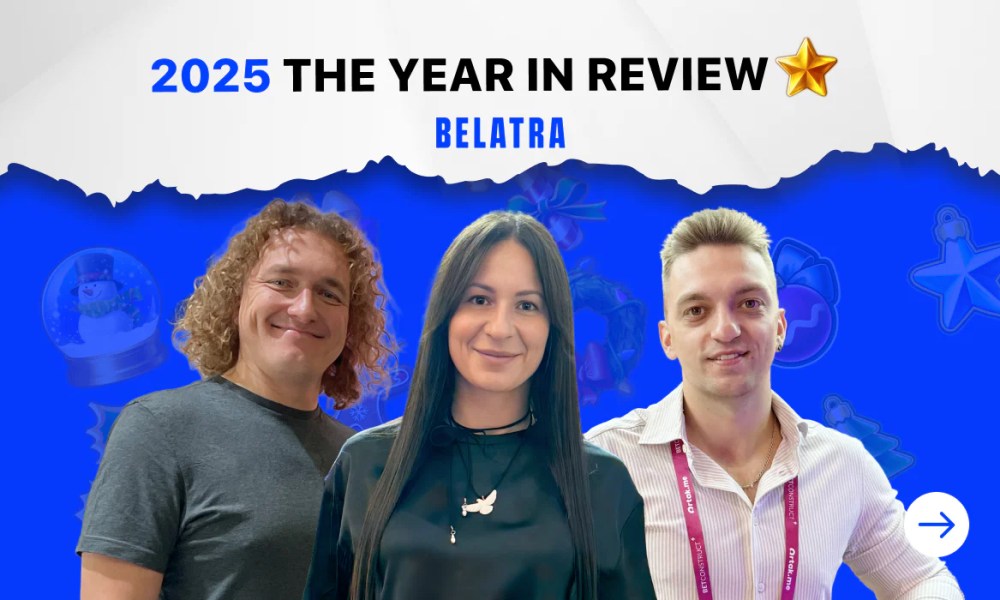
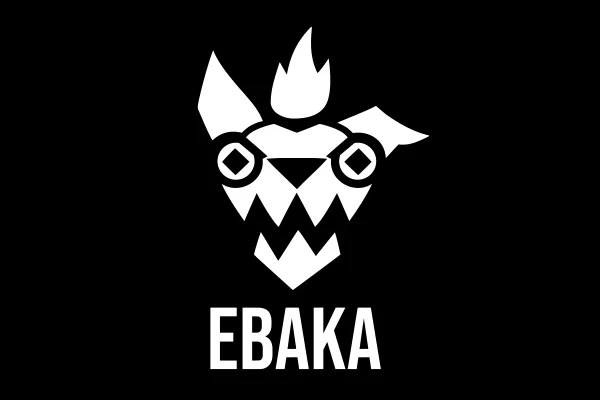


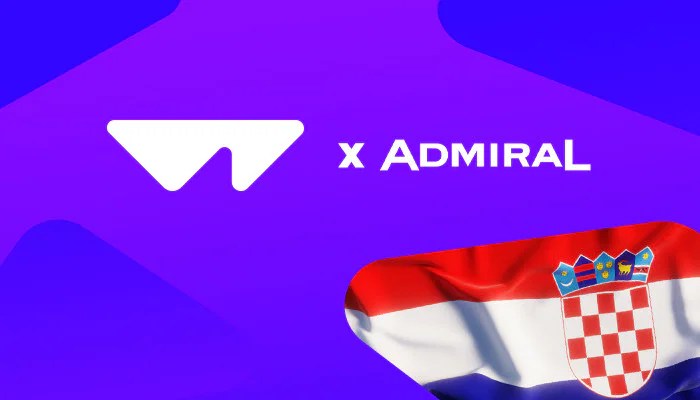



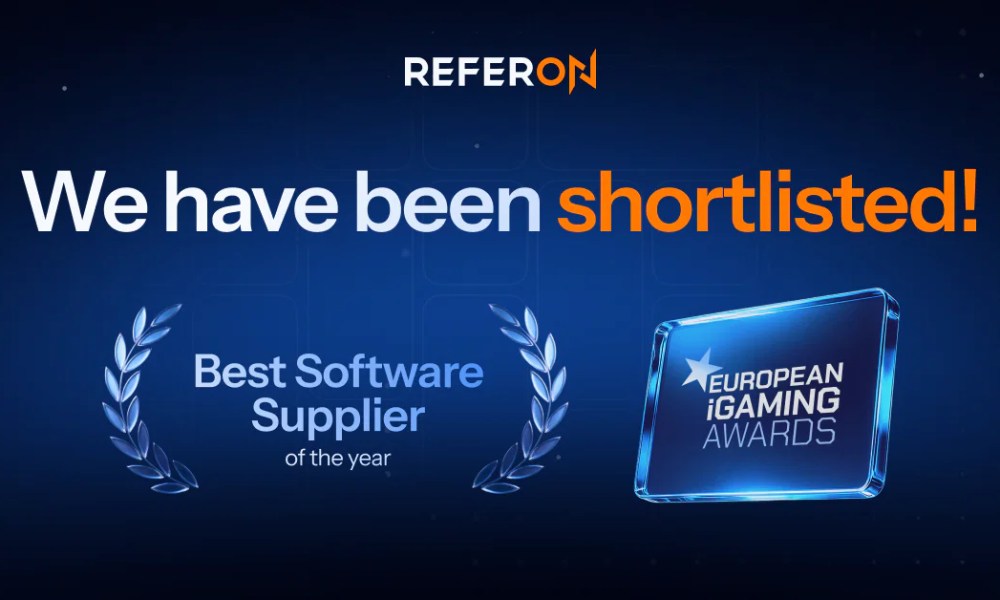
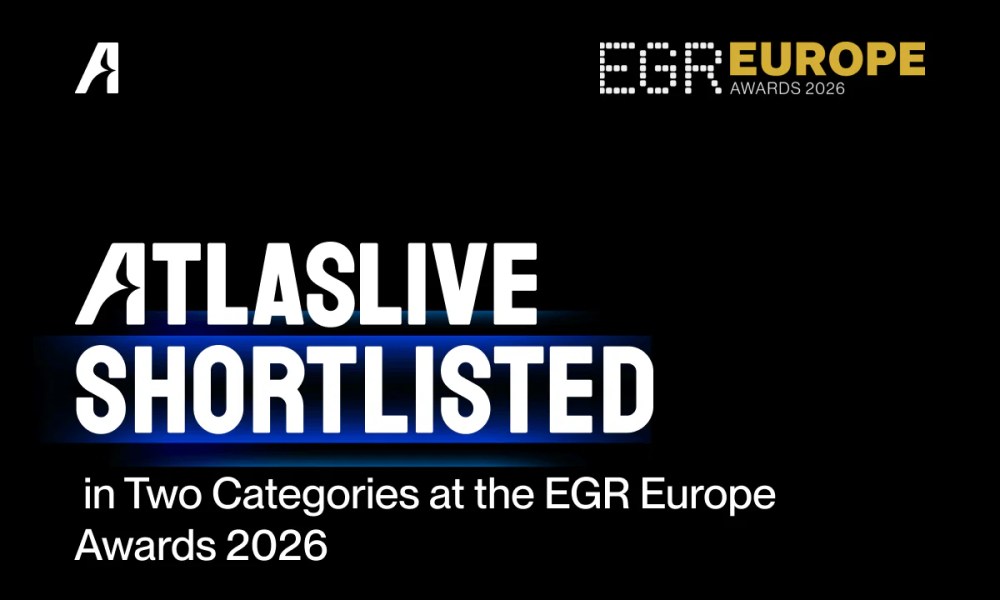
You must be logged in to post a comment Login